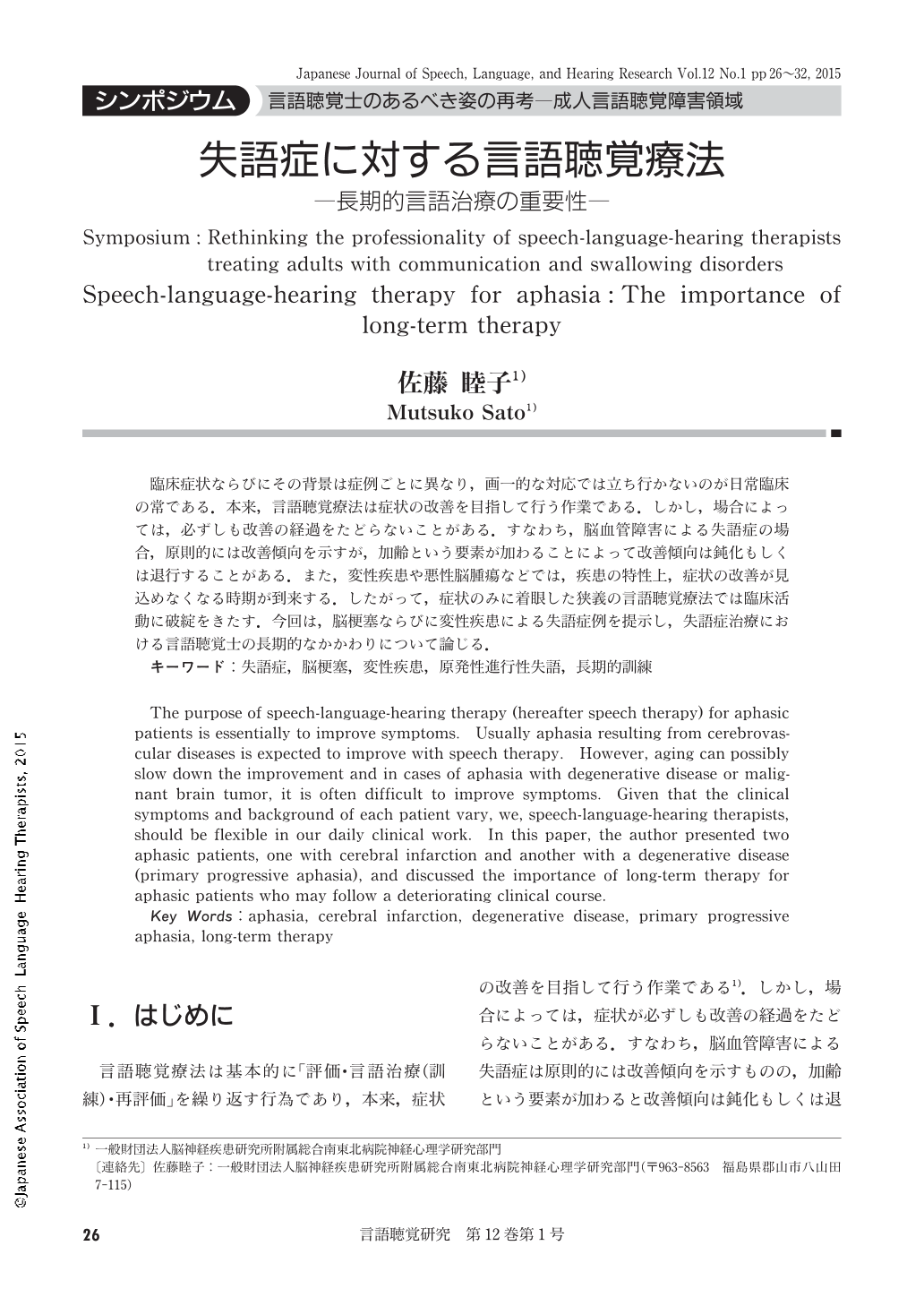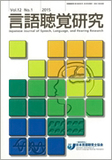Japanese
English
- 有料閲覧
- Abstract 文献概要
- 1ページ目 Look Inside
- 参考文献 Reference
臨床症状ならびにその背景は症例ごとに異なり,画一的な対応では立ち行かないのが日常臨床の常である.本来,言語聴覚療法は症状の改善を目指して行う作業である.しかし,場合によっては,必ずしも改善の経過をたどらないことがある.すなわち,脳血管障害による失語症の場合,原則的には改善傾向を示すが,加齢という要素が加わることによって改善傾向は鈍化もしくは退行することがある.また,変性疾患や悪性脳腫瘍などでは,疾患の特性上,症状の改善が見込めなくなる時期が到来する.したがって,症状のみに着眼した狭義の言語聴覚療法では臨床活動に破綻をきたす.今回は,脳梗塞ならびに変性疾患による失語症例を提示し,失語症治療における言語聴覚士の長期的なかかわりについて論じる.
The purpose of speech-language-hearing therapy (hereafter speech therapy) for aphasic patients is essentially to improve symptoms. Usually aphasia resulting from cerebrovascular diseases is expected to improve with speech therapy. However, aging can possibly slow down the improvement and in cases of aphasia with degenerative disease or malignant brain tumor, it is often difficult to improve symptoms. Given that the clinical symptoms and background of each patient vary, we, speech-language-hearing therapists, should be flexible in our daily clinical work. In this paper, the author presented two aphasic patients, one with cerebral infarction and another with a degenerative disease (primary progressive aphasia), and discussed the importance of long-term therapy for aphasic patients who may follow a deteriorating clinical course.

Copyright © 2015, Japanese Association of Speech-Language-Hearing Therapists. All rights reserved.


